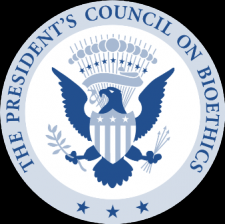Interview: “Democratic deliberation” and bioethics
By Nelson Michael & Xavier Symons,
BioEdge
| 06. 08. 2016
With an election round the corner, the Presidential Commission for the Study of Bioethical Issues is coming to the end of its term. The Commission recently released its final report, entitled Bioethics for Every Generation: Deliberation and Education in Health, Science and Technology. The report discusses the complexities bioethical decision-making in an age of deep ideological disagreements and rapid biomedical progress. The Commission members are optimistic, suggesting that agreement can be reached on substantive bioethical policy matters through processes of “democratic deliberation”. The report proposes an ambitious educational program to improve the bioethical literacy of the public, and also outlines a series of civic virtues that policy stakeholders should adopt when debating ethical issues.
Last week Xavier Symons, of BioEdge, conducted an email interview with Col. Nelson L. Michael, MD, PhD, about the report and the future of bioethics in the United States. Col. Michael is a PCSBI member, and also Director of the U.S. Military HIV Research Program at Walter Reed Army Institute of Research.
******
BioEdge: Hillary Clinton and Donald Trump are the likely candidates for the...
Related Articles
By Scott Solomon, The MIT Press Reader | 02.12.2026
Chris Mason is a man in a hurry.
“Sometimes walking from the subway to the lab takes too long, so I’ll start running,” he told me over breakfast at a bistro near his home in Brooklyn on a crisp...
By Katrina Miller, The New York TImes | 02.05.2026
Joseph Yracheta: The Native Biodata Consortium is the first nonprofit data and sample repository within the geographic bounds and legal jurisdiction of an American Indian nation, on the Cheyenne River Sioux Reservation in Eagle Butte, S.D.
NativeBio participated in a ...
By David Jensen, California Stem Cell Report | 02.10.2026
Touchy issues involving accusations that California’s $12 billion gene and stem cell research agency is pushing aside “good science” in favor of new priorities and preferences will be aired again in late March at a public meeting in Sacramento.
The...
By Lauren Hammer Breslow and Vanessa Smith, Bill of Health | 01.28.2026
On Jan. 24, 2026, the New York Times reported that DNA sequences contributed by children and families to support a federal effort to understand adolescent brain development were later co-opted by other researchers and used to publish “race science”...




